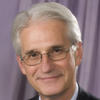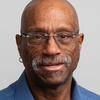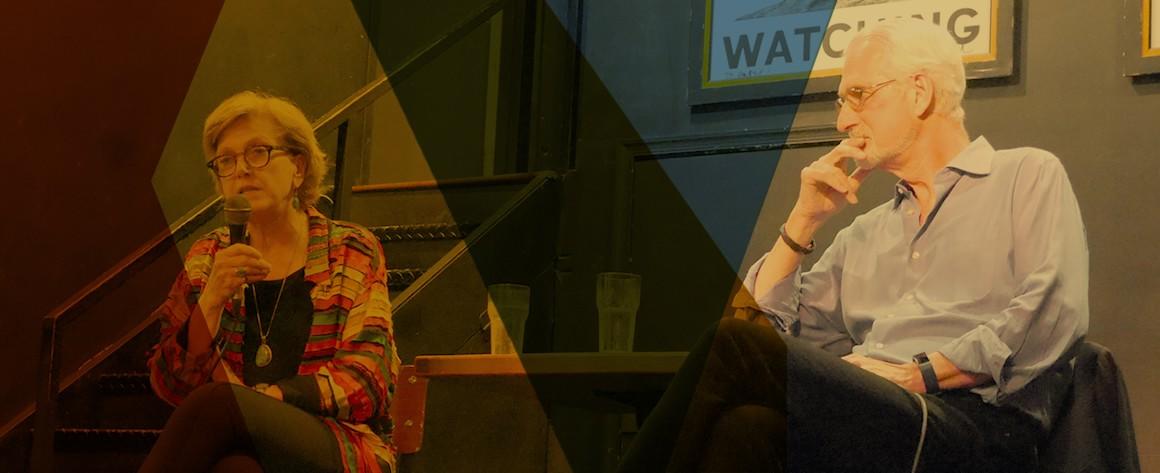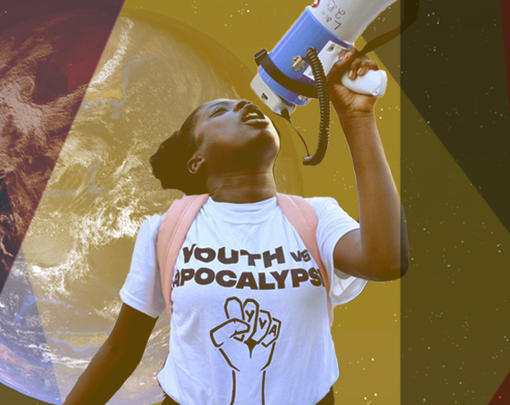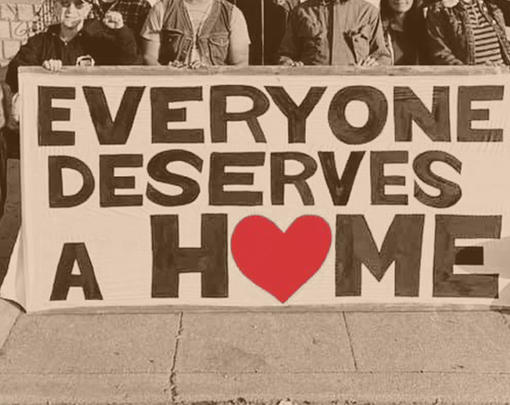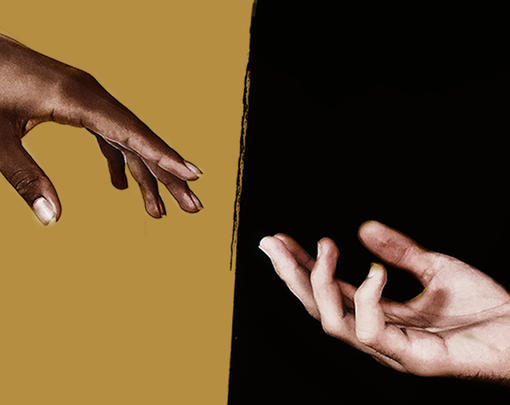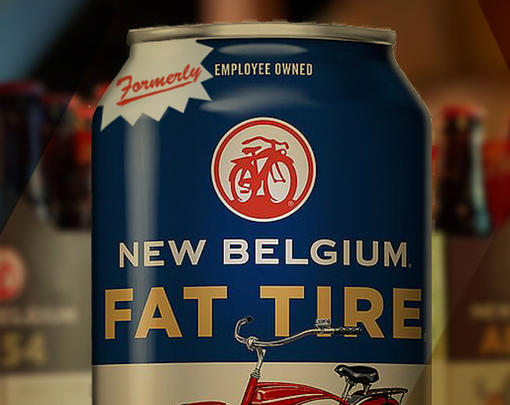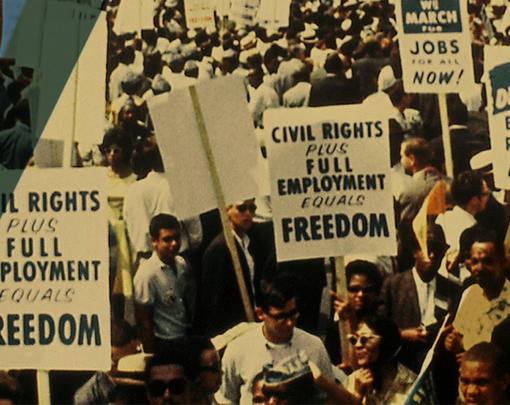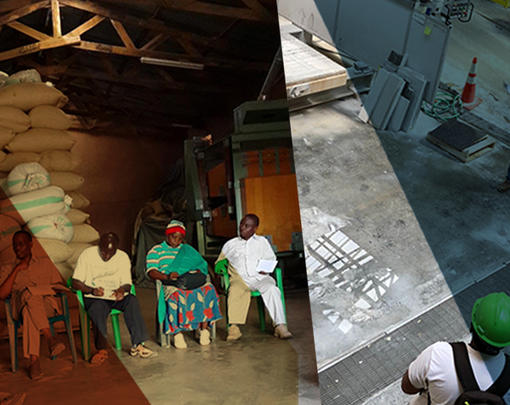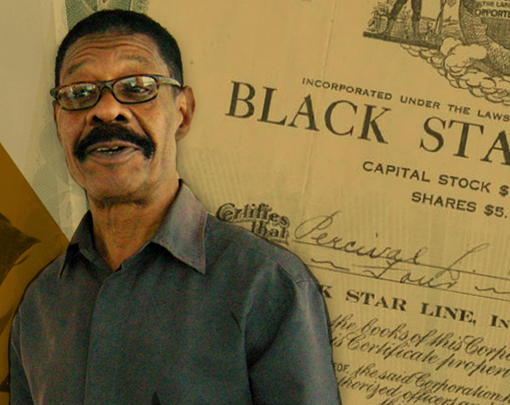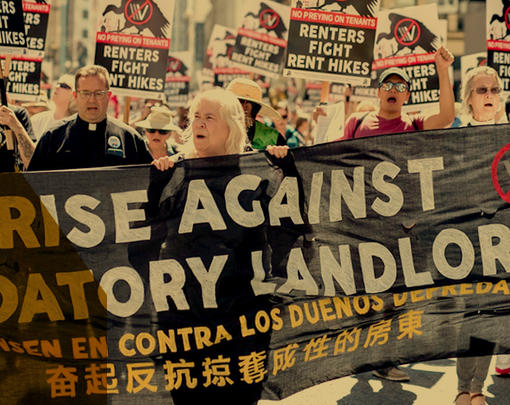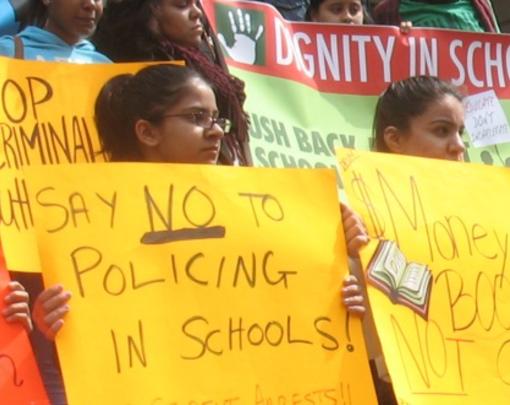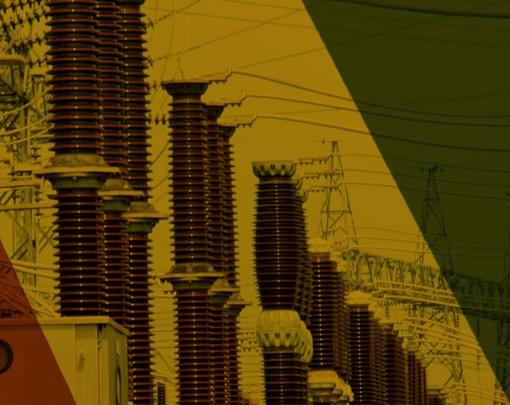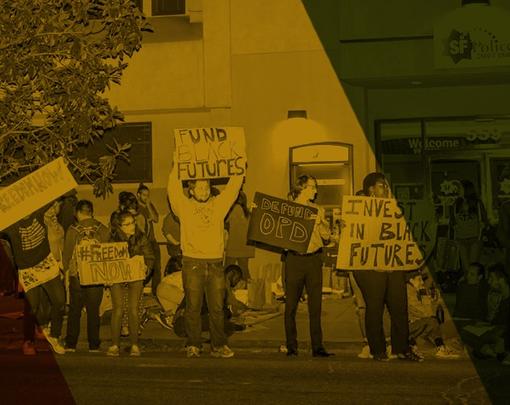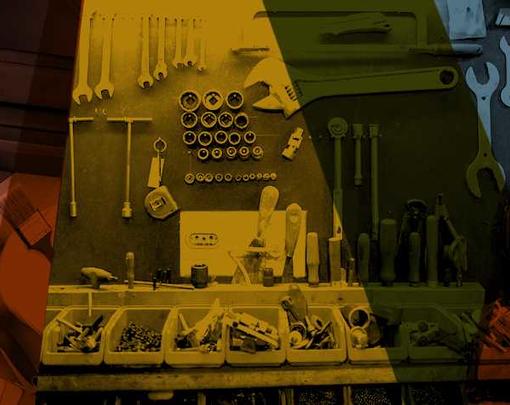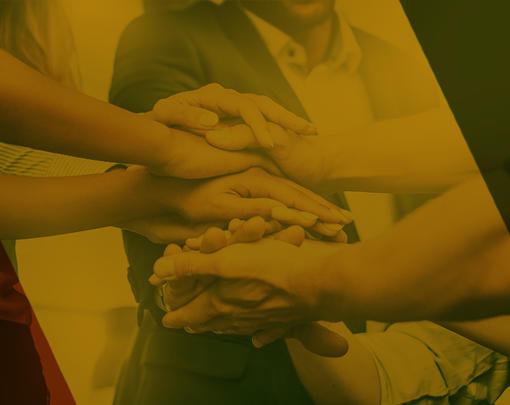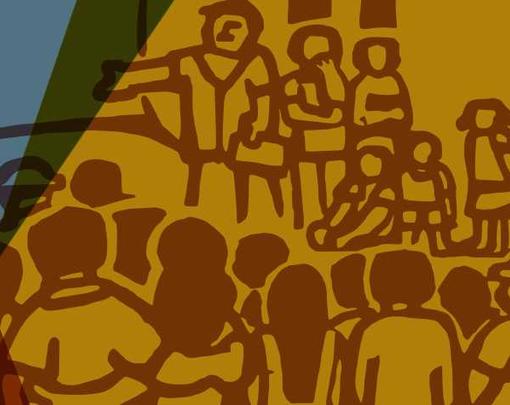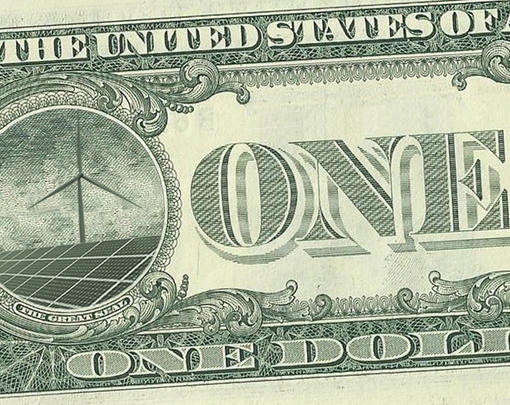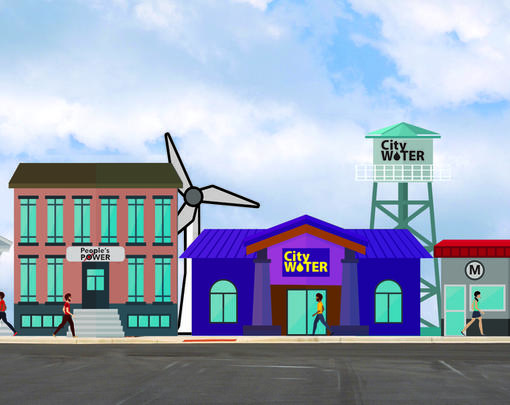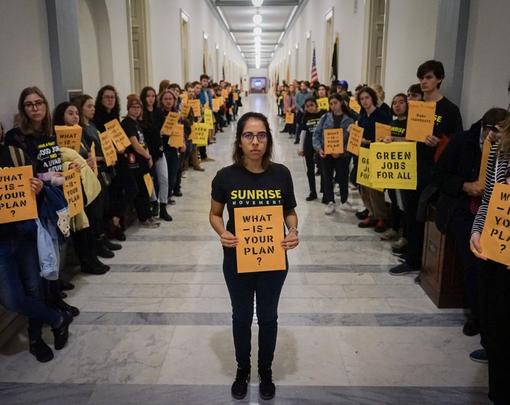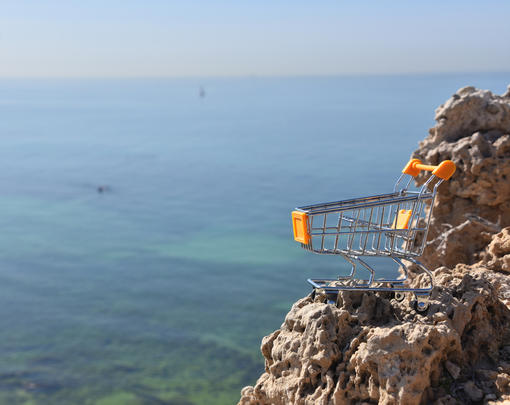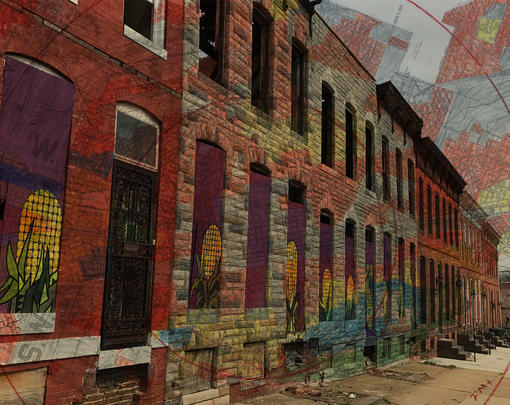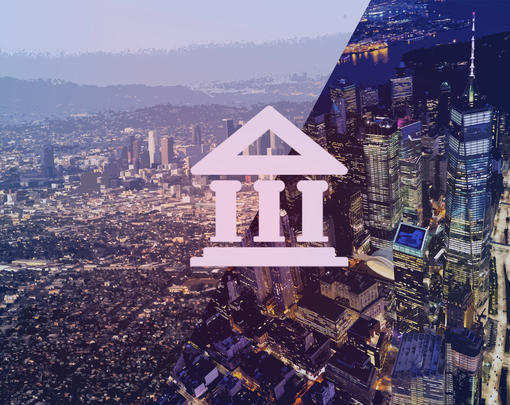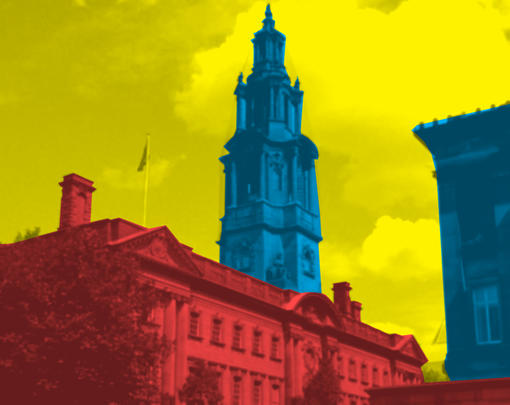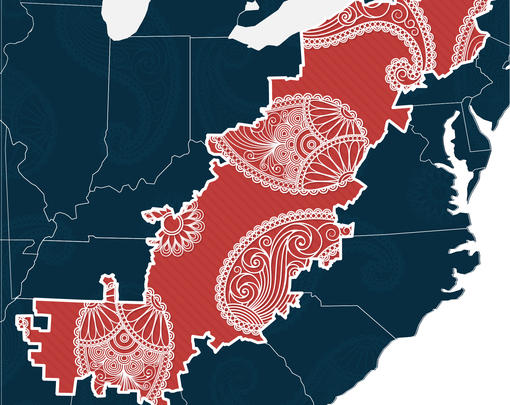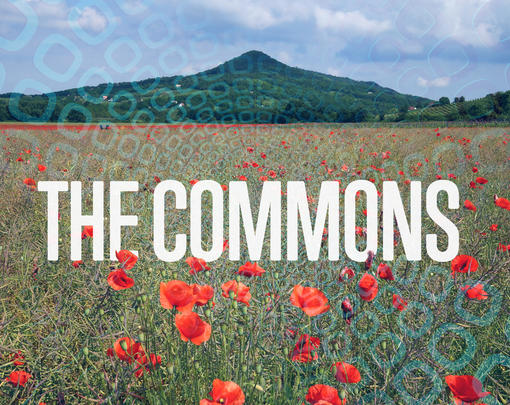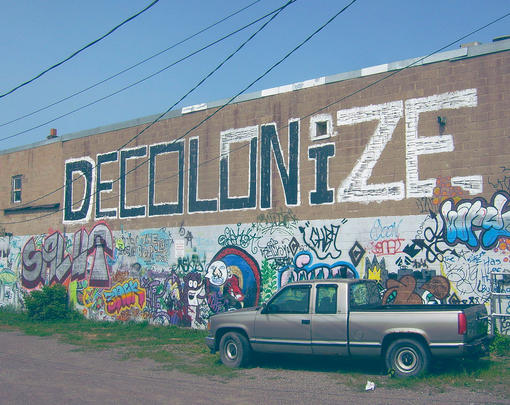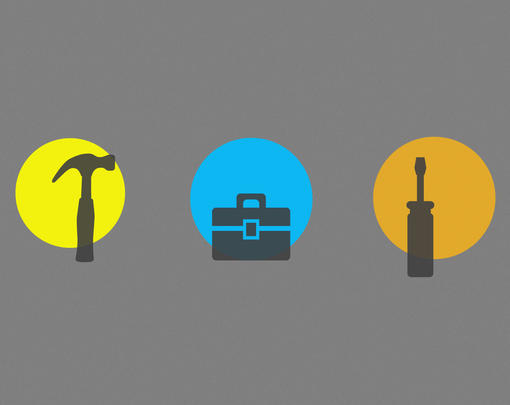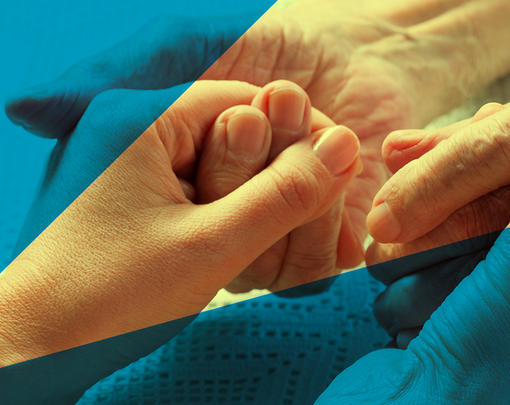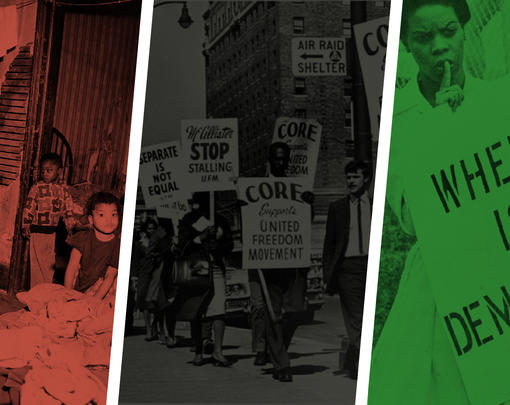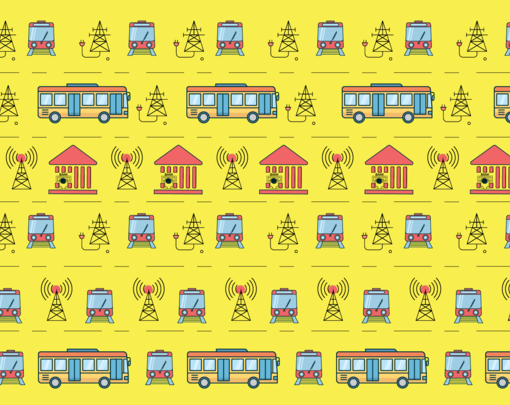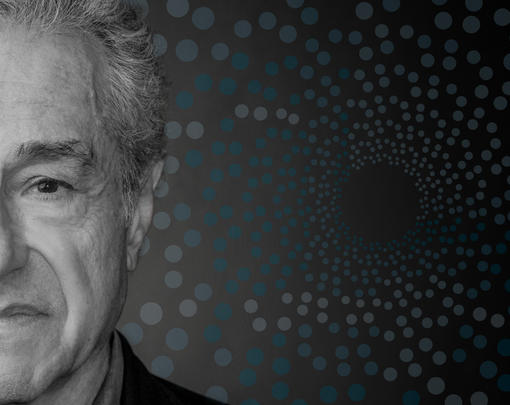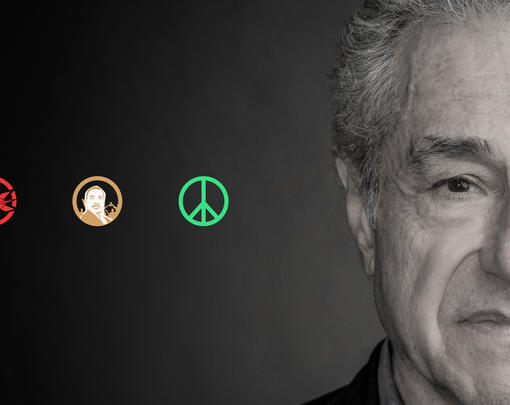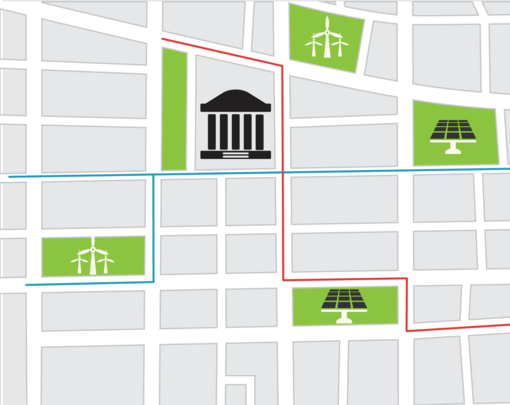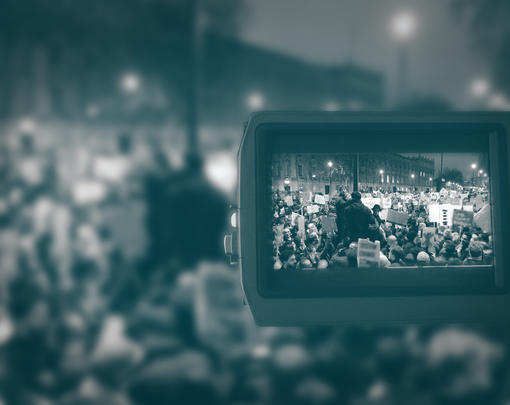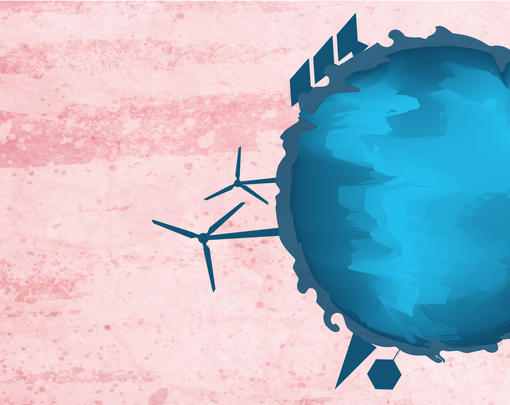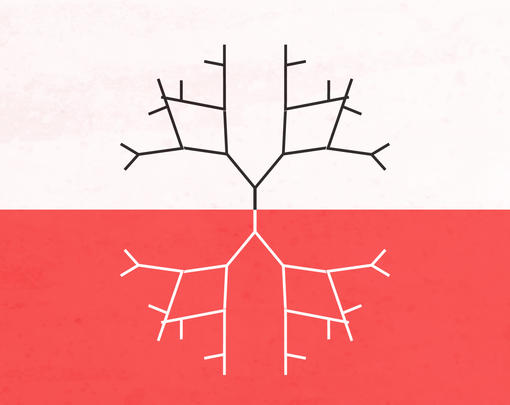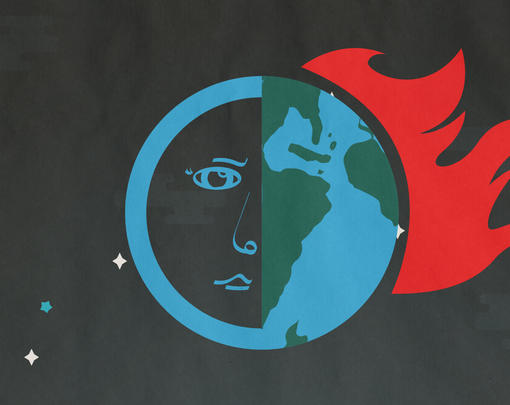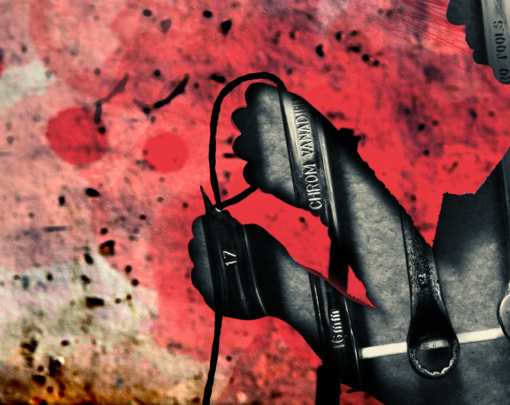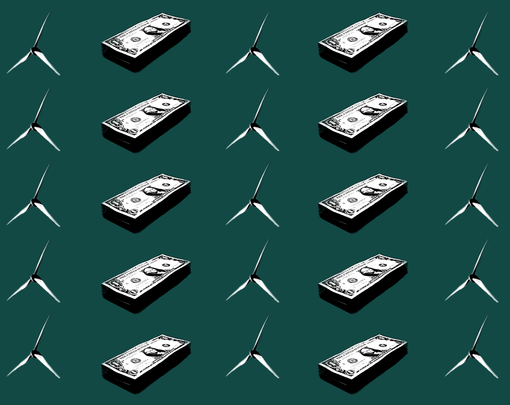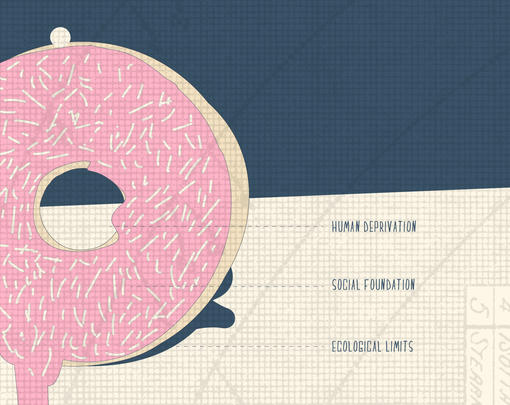Isaiah J. Poole: Welcome to The Next System Podcast. I’m your host, Isaiah J. Poole. Don’t forget that you can find previous editions of this podcast, transcripts, and more information about the topics we discuss on our website, TheNextSystem.org/podcast.
In July 2019, the president and the executive vice president of The Democracy Collaborative, Ted Howard and Marjorie Kelly, released their book, The Making of a Democratic Economy. Since then, they have toured the country to talk to people about what they say in the book is “a movement that doesn’t know it’s a movement.” What the people who are a part of this movement have in common is a desire to create an alternative to an extractive, predatory form of capitalism that is driving income inequality and ecological disaster. As we start a new decade, it seems appropriate to dig into the message of this book in the context of the moment we’re in, especially as the United States heads into one of the most consequential election seasons in its history. With that, Marjorie and Ted, welcome to the program.
First, for the people who aren’t familiar with the book, can you briefly state the key message?
Marjorie Kelly: Ted and I wrote this book to share what we have seen rising all around the country, and in fact, around the world: that people instinctively know what needs to be done; we need a different kind of economy, one that’s not for the one percent, but that’s for all of us.
In the book, we visit around and we say, “Where is this rising? Where is the democratic economy being built?” We look at places that are building employee ownership. We look at Cleveland, where there are anchor institutions buying from worker-owned firms and rejuvenating the community. So we look at these various places and we talk about how they add up to, really, a new paradigm. A democratic economy is one that is designed from the inside out for all of us to flourish and to live safely within planetary boundaries.
Isaiah J. Poole: Now, Ted, you’ve traveled along with Marjorie to a lot of places around the country, both in preparing the book and in talking about the book afterward. So I’m wondering, what are the most important things you learned as you traveled around the country?
Ted Howard: Well, my travels have actually been not only all over the United States. I’ve been speaking about this book also in Canada, the United Kingdom, the Netherlands, and Spain. Something I’ve seen everywhere is what I guess I’d call really heroic activity and action on the part of people in communities that have been left behind, that are suffering, that are facing very difficult odds. The way people are innovating these extraordinary solutions, making things happen in places that you look at them and you think, “Boy, can anything really move forward here? It’s just such a tough situation people are facing.” And yet, real results are happening everywhere. So, one thing I’ve seen is the extraordinary energy and commitment of people, not just to tinker at the margins but to literally build a new kind of economy in the places where they’re living—a new economic system, if you will, at the local level.
Isaiah J. Poole: So give me a couple of good examples of that. There were some in the book, but what particularly jumps out as particularly resonant right now?
Marjorie Kelly: One of the most exciting I would point to is a place that we visited in Portland, Oregon. There was a man there, Tyrone Poole. He was formerly homeless and ended up starting his own company. He was going to help people who had vouchers in the city for affordable housing be matched up with openings, because they were being turned down half the time. He created a phone app that could make these matches, and he’s built a company around that. He became the Oregon Entrepreneur of the Year. He received very specific and deliberate help from the Portland Economic Development Commission, which repositioned itself as Prosper Portland, to say that racial equity, gender equity was at the very heart of everything they were doing. That’s an example. There’s a movement all across the country in economic development. Let’s develop place-based assets. Let’s be inclusive, racially, as we do this. It’s an example of building in place, in communities right now, the kind of economy that could help more of us to flourish.
Isaiah J. Poole: Some people would look at that story and say, well, city organizations helping young entrepreneurs rise up, we’ve done that for a long time. We’ve had things like this. Be it the Small Business Administration or the Economic Development Administration, things like that have had mixed successes. What in Tyrone’s story is different?
Marjorie Kelly: I would say a couple of things. First of all, he didn’t succeed alone, right? This was the city’s economic development specifically targeting its services to people of color and to women, who are underserved entrepreneurs. You’re right, there’s a lot of support for small business. Most of it goes to white men, quite frankly. This is a more inclusive approach. That’s one thing that’s different. The other thing I would say that’s different, we saw with the research we did. Most economic development is still focusing on giving tax breaks to multinationals to lure them into the community, and in fact, building local economies has been tightening up. The spending for that has been less in the downturn. I think for this city to put its marker down and say, “No, we’re going to build locally and we’re going to make that wealth inclusively owned,” I think that’s pretty remarkable.
Isaiah J. Poole: Since you wrote the his story in your book, do you know what has been happening to him since? Or, can you talk about some of the other people you’ve written about in the book, and where they’ve gone in the months since you’ve published?
Marjorie Kelly: Sure. Actually, I gave a reading at a bookstore there in Portland, Oregon, and Tyrone came to the reading, which was wonderful. It was great to see him. One of the things he said is, “What I particularly liked about what you guys did in this book was, you didn’t make me sound like I’m an exception.” His point was that there are all kinds of talent in communities of color and among women that’s being left behind, that’s being neglected. He is, in fact, just one of many people like him. He’s thriving. He’s raised millions, his business is up and running, and he’s serving in several different cities now. He’s a real success.
Isaiah J. Poole: But the key there was that you had, first of all, a person who had a good idea, had a desire to get ahead, got a supportive system from the city, and together they were able to make that work.
Marjorie Kelly: Let me build out a little bit more the lessons that I see going on here. That is, that we need equal systems of support to help everyone to flourish economically. A lot of times, when you are a white middle-class person and you’re starting a business, you go to friends and family. But if you’re from a family of color, chances are you can’t borrow $10,000 to $50,000 from somebody. So how do you get that kind of support around people who’ve been excluded? That’s a lot of what we’re talking about in the book. Portland has since built out a program to get resources and loans and technical assistance in the hands of hundreds of businesses. They have a very, very large goal to what they want to do locally.
Ted and I were recently at the SOCAP conferences, the Social Capital Markets. It’s a big impact investing conference every fall in the Bay Area. We were recently out there, and I ran into a woman who is building another form of getting friends-and-family money to people of color. People can invest in local certificates of deposits in their banks, and that money is earmarked to become startup funds for people of color. These are the kinds of examples of how do you begin to build an ecosystem that’s inclusive and reaching all of us, and not just those who have traditionally benefited.
Ted Howard: One of the stories we tell in the book, actually in the last chapter, is outside of the United States. It’s a small town, 150,000 people in England, called Preston. Marjorie used the term “ecosystem.” What they built in Preston, using and leveraging public resources, public authorities, institutions and so forth, is literally starting to produce a new kind of economy that is producing different kinds of outcomes. They’re leveraging public employee pension funds that used to always just go to the London version of Wall Street, what they call the City. You’re taking 100 million pounds of those pension funds and reinvesting them in the community in Preston. Better housing, business development, transportation and so forth. They are systematically moving contracts—the police authority, the housing department, the University of Central Lancashire, the city council—for goods and services that used to leave the Lancashire County, many of them leaving England, so therefore you’re not getting any circulation of local money, in terms of multiplier effect. Bringing back £75 million of money back into the city for more employment, they’re building a public bank, and they’re incubating co-ops. They’ve really created this ecosystem.
As a result, Preston, which when they started this six years ago was known widely as the suicide capital of England, had wages suppressed far below the level of the nation, had a High Street that 50% of which, when I first visited, was boarded up because business had left. Today, PricewaterhouseCoopers this year named Preston the most improved community in all of England. They’re continuing forward with new innovations. There, you start to see that you’re producing. One of the things about the book we’re trying to say is, these are not just little projects. These are attempts to build a way of operating an economy that can produce results, on an ongoing basis, that are producing more local stability, more wealth equality, better incomes, better environmental outcomes. This really starts to be system change at the local level.
Isaiah J. Poole: And you’ve been to Preston?
Ted Howard: I’ve been to Preston many times. I actually kid with the head of the city council there that I keep expecting them to give me the key to the city. He hasn’t stepped up yet. But yes, I’ve been there about half a dozen times.
Isaiah J. Poole: So, from what you have seen, how would you describe the difference between the city when it was starting down this road and where it is now, just from your own eyes?
Ted Howard: Well, when I first visited there, at first as I said there was tremendous poverty and so forth. Really at that early stage, what they were hoping was that, in a sense, someone was coming to rescue them. Indeed, there had been a £750 million socioeconomic development scheme that was going to take place in the city, big corporations coming in and so forth. That whole thing fell apart, and they realized, “No one’s coming to save us.”
Secondly, the Tory government, the conservative government that’s been governing England for the last decade, had imposed austerity and was systematically eliminating the resources available to the public institutions. They saw, “If we want to preserve Preston, we need something innovative and something we can control.” I think that’s the difference. Rather than being nested within an extractive economy where they’re buffeted around by very large national and even international forces that they have no way to control or push back on, they decided, “We’re going to build something that’s indigenous, that’s rooted locally, and that we can really direct ourselves.” In a sense, it’s a kind of local self-determination using local resources, not trying to find some big hundreds of millions of pounds scheme to come and rescue them.
Isaiah J. Poole: It’s the opposite of what Amazon tried to do in New York City, with the collusion, if you will, of the state and local government to bring Amazon into New York City to plop in a 25,000-employee HQ2, but without cooperation from the community. Of course, as we all know, the community rebelled.
Ted Howard: Well, of course. When these large corporations come in and try to come in, while they may bring jobs, they’re not companies that particularly have any loyalty to the community that they’re in. They’re simply sited there because of the tax breaks, the subsidies, the free land, and all of the basket of goodies they get. Frankly, I see this in Cleveland, Ohio, where I live. When another city or state in six years or 10 years makes them a better deal, they up and go. They’re footloose. They’re not rooted locally. In Preston, you’ve got locally rooted entities that are not going to leave.
I had a fascinating conversation there with the head of the police authority, who said to me, “You may be wondering why we’re involved in this. We’re supposed to be fighting crime. Why are we trying to move contracts back into the city? Why are we operating in this new way?” He said to me, “Because we’re going to be here for the long haul. This is a way to make a safer community, and our mission as police is public safety. Building our own economy that we control becomes a policing issue, if you will.”
Isaiah J. Poole: To what extent is this basic idea catching fire in the United States?
Marjorie Kelly: We’ve been really thrilled with the book tour. We’ve been out to at least seven cities. If you add up all the ones you’ve been to abroad, Ted, it’s probably closer to a dozen. I’ve been really heartened to hear the uptake and the interest in this. I would say that the term “democratic economy” isn’t yet catching fire. I think it’s out there. It makes intuitive sense to people. But there are lots of aspects of this that are catching fire.
Employee ownership, for example: More and more cities are beginning to work to keep their companies locally owned through employee ownership. New employee ownership centers have sprung up in Pennsylvania, there’s a new one in North Carolina, and those are growing pretty rapidly. In the Bay Area, San Francisco is working on employee ownership. In Colorado, the new governor there has made it a whole platform for himself.
Also, city-owned and state-owned banks are catching on. For the new governor of California, it was part of his platform when he campaigned.
Isaiah J. Poole: I believe New Jersey, as well.
Marjorie Kelly: Yes, that’s right, the governor of New Jersey. Yeah, I think these ideas are getting more and more into the mainstream and starting to catch fire.
Isaiah J. Poole: What’s your level of optimism about the democratic economy movement expanding, particularly given the political climate we have?
Ted Howard: I hope it’s not simply optimism, but also some realism. I think the system we live in right now is incapable of addressing the ever-escalating crises we’re facing; whether it’s the crisis of growing wealth inequality, where you have for instance three people who own as much wealth as 160 million people in America; whether it’s the prices of climate, where this hyper-capital carbon-based growth-oriented economy cannot address the climate crisis we have. On one hand, I think you’ve got a very large economy that’s simply incapable of meeting the challenges they’re facing. Second, you have a crisis of confidence in the American public. Public opinion polls consistently show more than 70% of people say the following: “The economy is rigged against me in favor of the wealthy.” A lot of those people are Trump voters, by the way.
So you’ve got a large number of Americans who are losing faith in the sort of free-enterprise capitalism that we have, and you’ve got this growth of energy and dynamism on the ground in these kind of laboratories of democracy. I think this building of a democratic economy is not something that’s going to be turned back. The question is, is this going to become a very wonderful and cool alternative, or does it have a chance to actually become the paradigm for the economy over time?
Isaiah J. Poole: Well, one of the things that lead into that question is a dynamic that we have begun to see in the 2020 presidential race. A lot of bold ideas were put forward in your book, and some of them have seeped into the political discourse. For example, this idea that we ought to move forward and shut down the fossil fuel companies.
Marjorie Kelly: Right.
Isaiah J. Poole: Using the power of the federal reserve, you talk about that in the book, to basically buy out fossil fuel companies, shut down their production and enable a transition to green, sustainable energy. When you have these bold ideas, we have seen the pushback, not just from the vested interests that have something to protect but also from the people who are just scared. They say, “This sounds like we’re moving too far, we’re moving too fast. Why don’t we slow down? I know there’s this nice thing that we might get, but there’s a lot of risk in losing what we know and what we have.” How do we deal with that?
Marjorie Kelly: I see the same thing you’re talking about. A lot of people hope that we can still incrementalize our way forward. “Let’s just keep the status quo and be conservative in how we move forward.” We’re seeing that in the presidential election. Some people want more centrist candidates. When I look at it, I see a system that is not sustainable, even on its own terms. Something close to 100% of corporate earnings right now are going into stock buybacks and dividends. That is not a sustainable system. People don’t understand what that means. Essentially what it means is that companies are not investing in the real world. Even though we need to rapidly build a green energy economy, our biggest energy companies are instead investing in stock, which is going up in smoke, literally.
I mean, Pacific Gas and Electric—this is a story that has happened since the book came out. They are out in California. Their equipment has sparked wildfires in the last couple of years. To avoid that, they shut down power for a week or more at a time. They left people in the cold, in the dark, to reduce their own liabilities. Meanwhile, where there is municipally owned electricity, the lights stayed on. Now there’s this movement: PG&E is in bankruptcy. Cities are stepping forward to say, “We’re going to buy your equipment.” There’s a movement right now on the table to say, “Let’s create a consumer-owned cooperative to manage the energy of California.
Isaiah J. Poole: One of the things that is interesting about what’s happening in California and other places around the country: One of the things that polls tell us is that people have a visceral distrust of government, as they do other institutions. What you have been saying is when you say democratic economy, you’re not saying old-school, top-down bureaucracy. You’re talking about bottom-up participation and making sure these institutions work for everybody.
Marjorie Kelly: Right. I mean, you can have companies that have worker voice, that have community voice, and have a public purpose at their heart. That’s the kind of private sector that we need. That’s the next generation of enterprise. On the public side, yes, we need publicly owned companies, and they also need to have more democratic voice inside of them. What we’re talking about, really, is democratizing the economy. It’s never happened. There are models out there we can see. What does this mean? What does it mean to bring the public good into companies? Well, there are thousands of B-corps and benefit corps out there that have said, “Our bylaws, our articles of incorporation say we’re here to create public benefit.” There are publicly owned companies that have more democratic voice. It’s just one of the things that our colleague Thomas Hanna has been talking about. There are ways to construct the kind of economy that can work for all of us.
Isaiah J. Poole: I want to ask one more question that, actually, you bring up near the end of the book. It’s the issue of moral force and moral legitimacy. Morality undergirds all of our conversations about the economy, but I don’t think we are very explicit sometimes about talking about the values that drive our economy, as opposed to the structures and policies and so forth. You certainly are making the case that when you talk about system change, it’s not just changing the mechanics, but it’s changing the moral direction. What are your thoughts on how that is going to play out in the coming year?
Marjorie Kelly: When Ted and I started this book, we explicitly made a decision to build the book around values. It’s about community, sustainability, inclusion. These are the kind of values that are really a new common sense. It’s not Ted and Marjorie’s ideas for what we ought to value. This is what people instinctively value. What we’re told from system science is people self-organize around what they value. We were out to look at, where are these emerging values coming into the economy?
You raise a very important point. I think a lot of people look at this and say, “Well, these are nice little models. They’re kind of fringe-y. Wouldn’t that be great? But that’s really impossible.” And yet, we know that transformational change is as common as grass in history. You look at the fall of apartheid. You look at the monarchy, which at one time was a globe-spanning, nearly universal form of government, and is tiny today. You can look again and again at what seemed impossible becomes possible because of the moral force behind it. Why did apartheid fall? There was a universal feeling that it was illegitimate. Once a system loses legitimacy, it will fall.
Isaiah J. Poole: We’re already seeing, just in the polling that you referenced earlier, Ted, that the capitalist system as we now know it and see it is losing legitimacy.
Ted Howard: Yeah. Absolutely. As Marjorie said, when a system loses its legitimacy, it is because people see themselves as agents and actors in history. We hope this book opens up to people the role they have as historic actors to, if you will, bend the arc of history toward justice and toward a democratic economy.
Isaiah J. Poole: That’s a good place to end. The book is The Making of a Democratic Economy. You can learn more about the book and order a copy at ADemocraticEconomy.org. Ted Howard and Marjorie Kelly, thank you for being on the podcast.
Remember that you can get a transcript of this podcast, plus find previous editions, on our website, TheNextSystem.org/podcast. For the Next System Podcast, this is Isaiah J. Poole.

